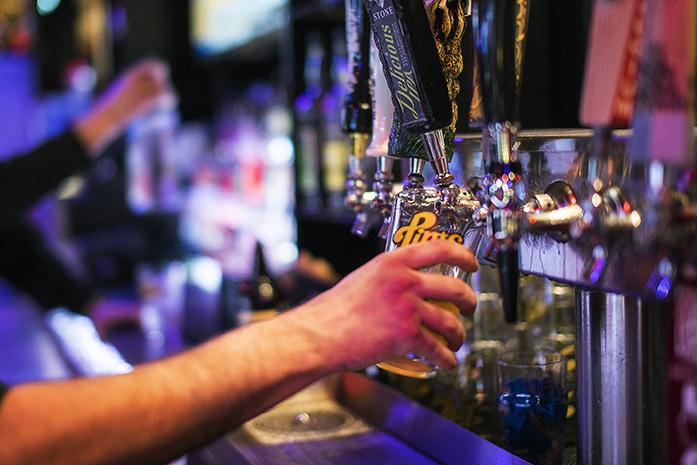By Kayli Reese
kayli-reese@uiowa.edu
Seven Iowa City businesses face fines and potential suspensions of their liquor licenses after failing alcohol-compliance checks conducted by Iowa City police officers.“Attempts are made to conduct alcohol-compliance checks a few times a year when staffing allows,” said police Sgt. Scott Gaarde. “The goal of the compliance checks is voluntary compliance with the state and municipal laws in place.”
According to a Feb. 19 police press release, on Feb. 18, officers sent underage participants dressed in normal attire into 31 Iowa City businesses licensed to sell alcohol. Twenty-four of the businesses, including the Union Bar and Sports Column, passed the checks by not selling to minors, the report said.
Seven businesses failed the checks, the report said: Cactus, Summit, Pints, Kum & Go on Mormon Trek Boulevard, L&M Mighty Shop on Burlington Street, and two Deli Mart locations on Mormon Trek and East Benton Street.
Robert Bailey, the public-information officer at the Iowa Alcoholic Beverage Division, said the agency will set possible penalties for establishments in due time.
“We work in partnership with local authorities,” he said. “Once these cases work through the courts, they get sent to us.”
Once the court cases close, and if businesses are found guilty, Bailey said, they nearly always accept the penalties, even in settlement cases.
The sanctions the alcohol agency may levy, Bailey said, depend on how many offenses the establishment has had within a set amount of time. He said a first offense, or an offense two years after a previous one, results in a $500 fine and a 14-day liquor-license suspension. After that, he said, sanctions are issued as follows: A second violation within two years results in a $1,500 fine and 30-day license suspension, a third violation within three years results in a $1,500 fine and a 60-day license suspension, and a fourth offense within three years results in a revoked license. Normally, Bailey said, following the fourth offense, an establishment is out of business for two years.
The agency does not deal with charges against individuals for selling alcohol to underage people, he said, because those cases involve criminal charges, and the division deals with setting fines and suspensions for businesses. However, Bailey said, the cases usually result in expensive fines and the loss of jobs for employees.
Cactus employee Moe Tellez said the establishment has done its normal job since the alcohol check. The last time Cactus was charged in an alcohol check was around two and a half or three years ago, he said.
All Cactus employees are required to check IDs, he said. Also, he said, Cactus has the legal-age date displayed in the restaurant as a reminder for employees.
The employee who sold alcohol on Feb. 18, Tellez said, was ticketed.
“Sometimes, they just don’t do the math right,” he said.



